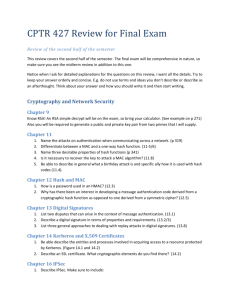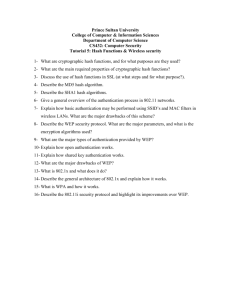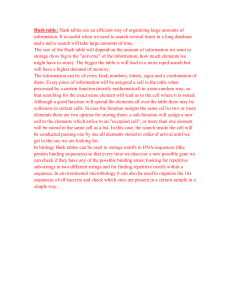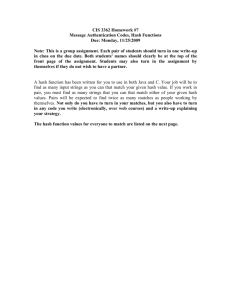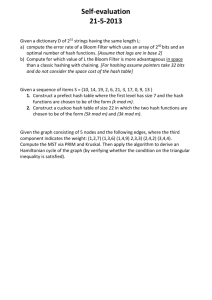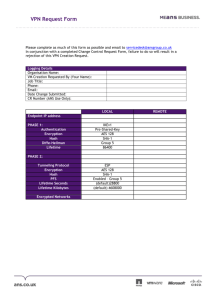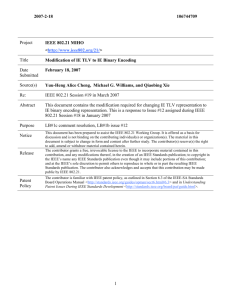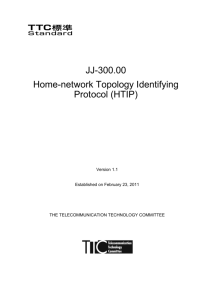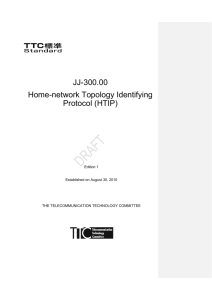Presentation aw-bhassink-ddcfm-security-0607
advertisement
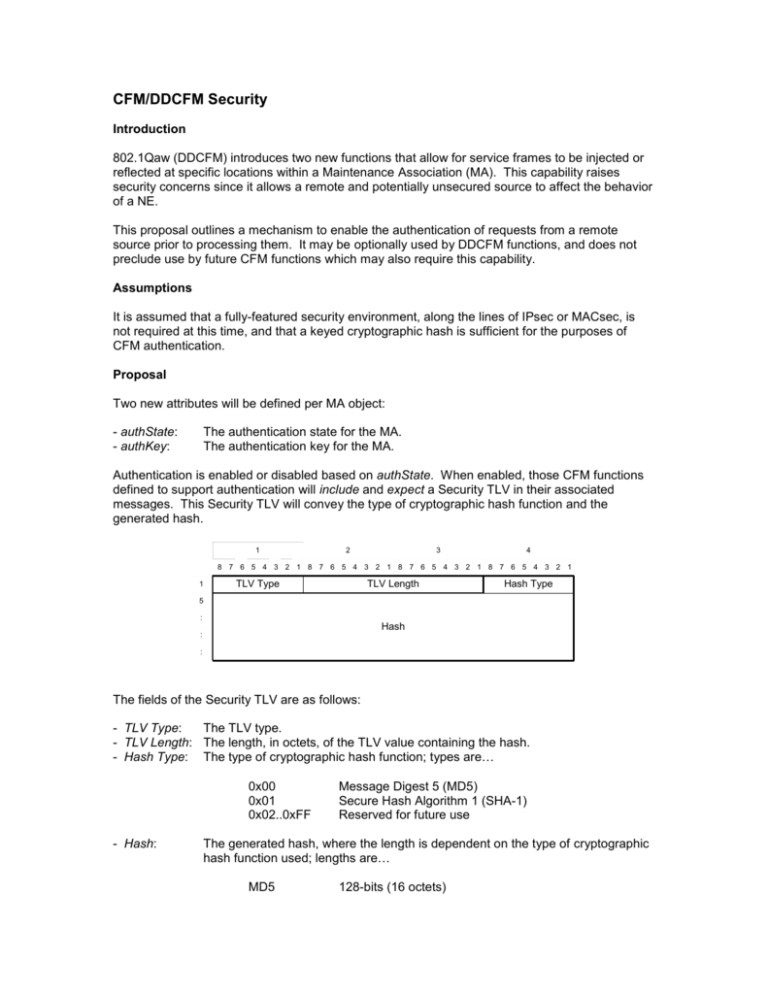
CFM/DDCFM Security Introduction 802.1Qaw (DDCFM) introduces two new functions that allow for service frames to be injected or reflected at specific locations within a Maintenance Association (MA). This capability raises security concerns since it allows a remote and potentially unsecured source to affect the behavior of a NE. This proposal outlines a mechanism to enable the authentication of requests from a remote source prior to processing them. It may be optionally used by DDCFM functions, and does not preclude use by future CFM functions which may also require this capability. Assumptions It is assumed that a fully-featured security environment, along the lines of IPsec or MACsec, is not required at this time, and that a keyed cryptographic hash is sufficient for the purposes of CFM authentication. Proposal Two new attributes will be defined per MA object: - authState: - authKey: The authentication state for the MA. The authentication key for the MA. Authentication is enabled or disabled based on authState. When enabled, those CFM functions defined to support authentication will include and expect a Security TLV in their associated messages. This Security TLV will convey the type of cryptographic hash function and the generated hash. 1 2 3 4 8 7 6 5 4 3 2 1 8 7 6 5 4 3 2 1 8 7 6 5 4 3 2 1 8 7 6 5 4 3 2 1 1 TLV Type TLV Length Hash Type 5 : Hash : : The fields of the Security TLV are as follows: - TLV Type: The TLV type. - TLV Length: The length, in octets, of the TLV value containing the hash. - Hash Type: The type of cryptographic hash function; types are… 0x00 0x01 0x02..0xFF - Hash: Message Digest 5 (MD5) Secure Hash Algorithm 1 (SHA-1) Reserved for future use The generated hash, where the length is dependent on the type of cryptographic hash function used; lengths are… MD5 128-bits (16 octets) SHA-1 160-bits (20 octets) The hash is generated from the message and authKey of the MA.
